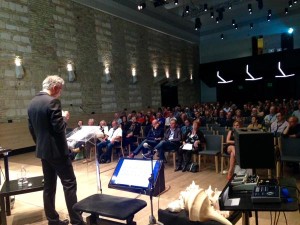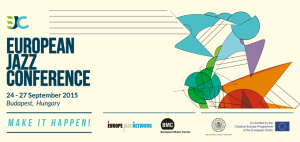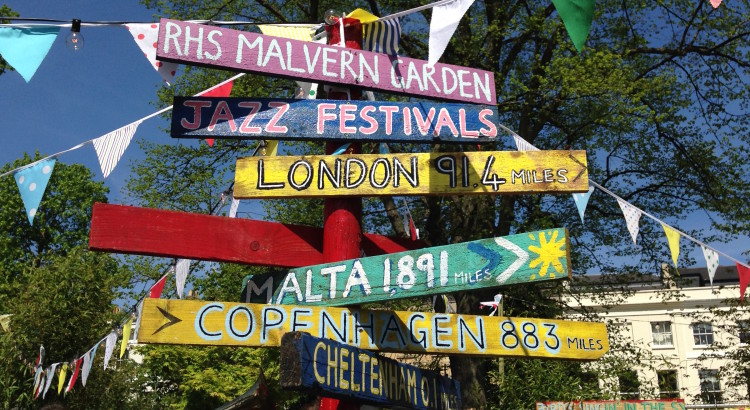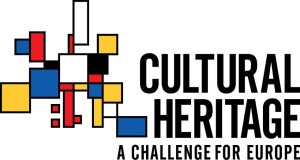 It’s not every day that an international conference starts with the national host welcoming everyone by blowing through different sized seashells and the event manager giving a comedy demonstration of a buff, showing delegates different ways in which a garment – purposely designed for the event – could be worn and used. But this is no ordinary conference. It’s the gathering of Europe Jazz Network, a pan-European group that brings together promoters, festivals, venues and national music agencies to discuss issues, opportunities, and collaborative ideas around jazz and improvised music today.
It’s not every day that an international conference starts with the national host welcoming everyone by blowing through different sized seashells and the event manager giving a comedy demonstration of a buff, showing delegates different ways in which a garment – purposely designed for the event – could be worn and used. But this is no ordinary conference. It’s the gathering of Europe Jazz Network, a pan-European group that brings together promoters, festivals, venues and national music agencies to discuss issues, opportunities, and collaborative ideas around jazz and improvised music today.
 Once the seashells performance and jazz buff demonstration were over, EJN President Ros Rigby welcomed Professor Christopher Dell to the stage to deliver a performance-based keynote speech that described an improvisational approach to urban planning, architecture and design. Interspersing examples of theory and practice with short improvisations on the vibraphone, Dell drew on the work of Henri Lefebvre to argue that cities and spaces should no longer be understood as fixed objects, and instead advocated an improvisation-led approach to architecture and urban design which encourages both a hands-on and reflexive exploration of spaces and materials.
Once the seashells performance and jazz buff demonstration were over, EJN President Ros Rigby welcomed Professor Christopher Dell to the stage to deliver a performance-based keynote speech that described an improvisational approach to urban planning, architecture and design. Interspersing examples of theory and practice with short improvisations on the vibraphone, Dell drew on the work of Henri Lefebvre to argue that cities and spaces should no longer be understood as fixed objects, and instead advocated an improvisation-led approach to architecture and urban design which encourages both a hands-on and reflexive exploration of spaces and materials.
Although not talking specifically about festivals and heritage sites, the talk resonated with the CHIME project in several ways, most notably by encouraging the audience to think about the way in which places are used and re-used and how urban environments are understood as both produced and performative spaces today. CHIME will add to this discourse about how spaces can be reconfigured, transformed and reimagined over time and will extend the focus of study to landscapes, rural settings, post-industrial sites and other heritage settings.

 The relationship between jazz, festivals, and heritage sites is a complex and underexplored field of enquiry. Since the late 1940s, jazz and improvised music festivals have developed synergetic relationships with heritage sites to the point where, in different European settings today, festivals employ and engage with a range of heritage forms. Festivals facilitate uses and re-uses of heritage and have a transformative impact on attitudes to place, identity and history, from events that draw on landscapes, stately homes, iconic buildings and sites of historic importance to performance projects that encourage new forms of engagement and participation.
The relationship between jazz, festivals, and heritage sites is a complex and underexplored field of enquiry. Since the late 1940s, jazz and improvised music festivals have developed synergetic relationships with heritage sites to the point where, in different European settings today, festivals employ and engage with a range of heritage forms. Festivals facilitate uses and re-uses of heritage and have a transformative impact on attitudes to place, identity and history, from events that draw on landscapes, stately homes, iconic buildings and sites of historic importance to performance projects that encourage new forms of engagement and participation. 







